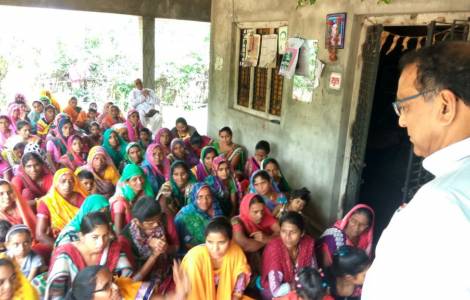
New Delhi (Agenzia Fides) - With "Dalit Liberation Sunday" the Catholic Church wants to highlight the situation in all Catholic communities in India on November 12, the second Sunday of the month. "Dalit", literally "the oppressed", the "outcast", in a society that is often still characterized by the caste structure on a social, cultural and religious level and put their dignity back at the center of pastoral and social action. The hierarchical system of social stratification was formally abolished in India in 1950, but in fact it is still anchored in the mentality and still determines the division of labor and the competition for positions of power. The so-called “untouchables” remain the last in Indian society and are victims of violence and abuse. For this reason, the Catholic community has always paid "special attention" to this category of excluded and vulnerable people and, since 2007, has established the special day with demonstrations, initiatives, meetings, debates, liturgies and processions, organized throughout the country by a special office of the Catholic Bishops' Conference (CBCI), in collaboration with the "Indian National Council of Churches", a forum which brings together Protestant and Orthodox churches. It is a nationwide problem: according to official estimates, there are over 300 million Dalits in India (about 25% of the 1.3 billion population), and the stigma of untouchability is widespread among Christian and Muslim minorities. In particular, Dalits make up about 60% of India's 28 million Christians, meaning they experience social, economic, cultural and political marginalization and exclusion in most communities. The “Dalit Liberation Sunday”, in which liberation from oppression and discrimination is discussed and placed at the center of debates and prayers, is intended to underline that when civil coexistence is regulated by a constitution that every citizen Justice, equality and equal rights and opportunities are guaranteed, the situation of Dalits, which is still characterized by social discrimination, represents an intolerable violation of basic democratic rights. Dalits, it is affirmed, are children of God and as such, their inalienable dignity must be unconditionally affirmed. It is therefore a matter of reminding and sensitizing the population so that all forms and discriminatory practices associated with the caste system are overcome and measures are taken to eradicate them from Indian society as a whole and also within the Christian community, where they are still present despite everything, Dalits, the church said, "are denied inviolable rights that must be guaranteed to all citizens". In addition, Dalits of Christian religion in particular do not have access to certain benefits that the state reserves for the so-called "scheduled castes" simply because they have converted to Christianity, thereby preventing the granting of these social benefits (such as access to jobs and schools) is made dependent to the faith they profess.
As the Jesuit Myron Pereira emphasizes, "the celebration of Sunday for the liberation of Dalit is crucial in the effort to achieve true democracy and religious freedom in the country. A document from the Indian Bishops' Conference office responsible for pastoral care of Dalits says: "Dalits have embraced Christianity in search of a better life and found their dignity as children of God in Christ. But Dalits face three types of discrimination: by society, by the state and sometimes even by the church. Man has dignity and inalienable rights. Any limitation or denial of these rights is an act of injustice. When practiced within the church itself, it contradicts the evangelical evangelical values we profess." The office therefore promotes wide-ranging educational activities by building relationships with government representatives, members of parliament and political parties and by working on cultural and political levels. In addition to the the Sunday for the liberation of Dalits, there is also the so-called "Black Day" of the Dalits, a "black day" of protest and awareness-raising, which is celebrated every year on August 10th and is promoted by numerous Indian civil society organizations and supported by Christian communities of all denominations. The Day commemorates August 10, 1950, when the Indian President approved Article 3 of the Constitution on the so-called "scheduled castes". The law recognizes these social groups - which include Dalits, the most disadvantaged and excluded groups, - rights and benefits to improve their situation; However, the third paragraph of the provision states that "those who profess a religion other than Hinduism" do not belong to these groups. In 1956 and 1990, changes were made to extend benefits to Buddhist Dalits and Sikhs, while Christians and Muslims continued to be excluded. Precisely to remind the entire nation of the injustice of this provision, a day is celebrated which, together with that of November, is intended to draw attention to the living conditions of Dalits. (PA) (Agenzia Fides, 11/11/2023)